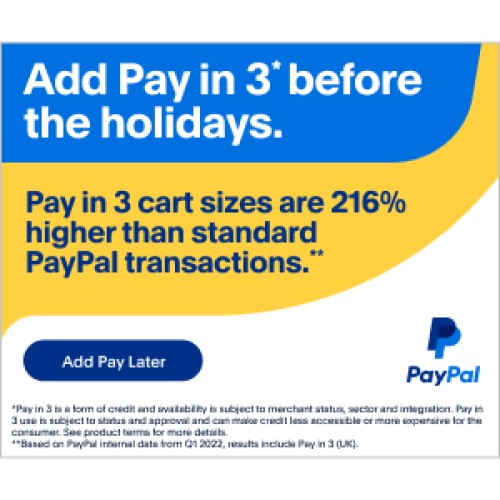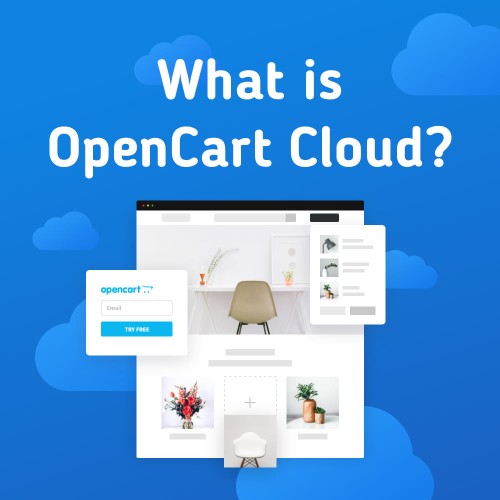Small businesses have always faced unique challenges when it comes to reaching customers and driving sales. However, in recent years, the rise of ecommerce has presented new opportunities for small businesses to expand their reach and grow their customer base. With more and more consumers turning to online shopping, it's becoming increasingly important for small businesses to establish an online presence and offer products for sale through ecommerce channels.

Recognizing this trend, Google has been taking steps to support small business ecommerce through a variety of initiatives. From new tools and features designed to make it easier for small businesses to sell products online, to partnerships with ecommerce platforms like Shopify, Google is working to level the playing field for small businesses and help them succeed in ecommerce. In this blog post, we'll take a closer look at some of these initiatives and explore how they're empowering small businesses to succeed in ecommerce.
Google has recently introduced several new ecommerce features that aim to make it easier for small businesses to sell products online. One of the most notable of these features is "Buy on Google," which allows customers to purchase products directly from Google search results or shopping ads.
This feature removes the need for customers to navigate to a separate website to complete a purchase, making the buying process more streamlined and convenient. For small businesses, this means that they can reach customers more easily and make sales more efficiently. Additionally, businesses can also increase their sales by creating recurring revenue streams by integrating a Shopify subscription app.
In addition to "Buy on Google," the platform also offers other features that help small businesses sell products online. For example, the "Local Inventory Ads" feature allows businesses to promote products that are available in their physical stores, driving foot traffic and increasing sales. Google has also introduced new tools to help businesses create more engaging product listings, such as 360-degree product imagery and augmented reality (AR) features.
Many small businesses have already seen success with these features. For example, online retailer OPOVE saw a 350% increase in sales after using "Buy on Google," while fashion brand Natori reported a 44% increase in conversion rates with the help of Local Inventory Ads.
Overall, Google's new ecommerce features are making it easier than ever for small businesses to sell products online, reach new customers, and drive sales.
In addition to these in-built features, Google is also more efficient than ever before at connecting businesses to tools for PR and marketing. For example, these days small businesses can easily find a media database to help them conduct targeted outreach without spending thousands of dollars in agency fees.
While Google's partnership with Shopify has helped many businesses expand their reach in ecommerce, Google has also partnered with other ecommerce platforms to provide more support for small businesses. One such partnership is with OpenCart, a popular open-source ecommerce platform.
Through the partnership, OpenCart merchants can easily list their products on Google Shopping, allowing them to reach millions of potential customers who use Google to search for products. This integration also enables businesses to manage their Google Shopping campaigns directly from their OpenCart account, making it easier for them to track their advertising performance and optimise their campaigns.
The partnership also benefits small businesses by providing access to Google's powerful analytics capabilities. This allows merchants to gain valuable insights into their customers' behaviours and preferences, which they can use to inform their marketing strategies and product offerings.
Many businesses have already seen success through the Google-OpenCart partnership. For example, Australian online retailer Total Tools saw a 147% increase in conversions and a 108% increase in revenue after using the partnership to list its products on Google Shopping. Similarly, UK-based sports retailer Kukri Sports reported a 500% increase in return on ad spend after using the partnership to promote its products on Google Shopping.
Overall, the partnership between Google and OpenCart is helping small businesses to expand their reach and grow their ecommerce sales. By providing easy access to Google's powerful advertising tools and analytics capabilities, the partnership is empowering businesses to compete with larger retailers and succeed in the digital marketplace.
Google's Focus on Mobile Commerce
Mobile commerce, or m-commerce, is becoming increasingly important for small businesses as more consumers use their smartphones to browse and make purchases online. Recognizing this trend, Google has been focusing on improving the mobile ecommerce experience for users and businesses alike.
Responsive web design is another crucial aspect that businesses must consider when designing their websites. It involves developing websites that are adaptable to different screen sizes and device types, ensuring that the website looks and functions optimally on desktops, laptops, tablets, and smartphones. Responsive web design not only enhances the user experience but also helps businesses to reach a wider audience, as more and more people access the internet on their mobile devices.
One of the key initiatives in this area is Accelerated Mobile Pages (AMP), which allows businesses to create mobile-optimised web pages that load quickly and provide a seamless shopping experience for customers. By making it easier for customers to browse and purchase products on their mobile devices, businesses can drive more sales and improve customer satisfaction.
Many small businesses have already benefited from Google's focus on mobile commerce. For example, online retailer Blue Nile saw a 40% increase in mobile conversions after using AMP to optimise its mobile site, while furniture retailer Article reported a 42% increase in mobile revenue after implementing AMP.
In recent years, the pursuit of alternative income sources has become increasingly popular, with more and more individuals exploring the world of side hustles and work-from-home opportunities. The digital age has opened doors to countless innovative ways to earn money from the comfort of one's home, and one such avenue is the thriving market for selling and buying feet pictures online. In fact, the demand for feet pictures has grown so much that it has led to a booming side-hustle income for many individuals. If you're curious to learn more about this unconventional but lucrative opportunity, check out this comprehensive guide on side-hustle income, which will provide you with all the information you need to navigate this unique market.
Google's Support for Local Businesses
Ecommerce can be especially beneficial for local businesses, as it allows them to reach a wider audience and compete with larger retailers. To support local businesses in ecommerce, Google has introduced a variety of initiatives, such as Google My Business.
Google My Business allows businesses to create a free online listing that appears in Google search results and Google Maps. This listing can include information such as the business's address, phone number, and hours of operation, as well as photos and reviews from customers. By providing this information, businesses can attract more local customers and drive more sales through their online channels.
Many small businesses have used Google My Business to successfully drive ecommerce sales. For example, restaurant chain Sweetgreen saw a 71% increase in online orders after optimising its Google My Business listing, while bakery chain Magnolia Bakery saw a 47% increase in website visits after updating its listing with new photos and information.
Conclusion
In conclusion, Google is empowering small businesses to succeed in ecommerce through a variety of initiatives. From new ecommerce features like "Buy on Google" and Local Inventory Ads, to partnerships with ecommerce platforms like Shopify and a focus on mobile commerce and local businesses, Google is helping small businesses expand their reach and drive more sales online.
As e commerce continues to grow in importance, it's essential that small businesses take advantage of these tools and features to stay competitive and reach new customers. By leveraging Google's support for small business ecommerce, businesses can grow and thrive in the digital marketplace.



Login and write down your comment.
Login my OpenCart Account